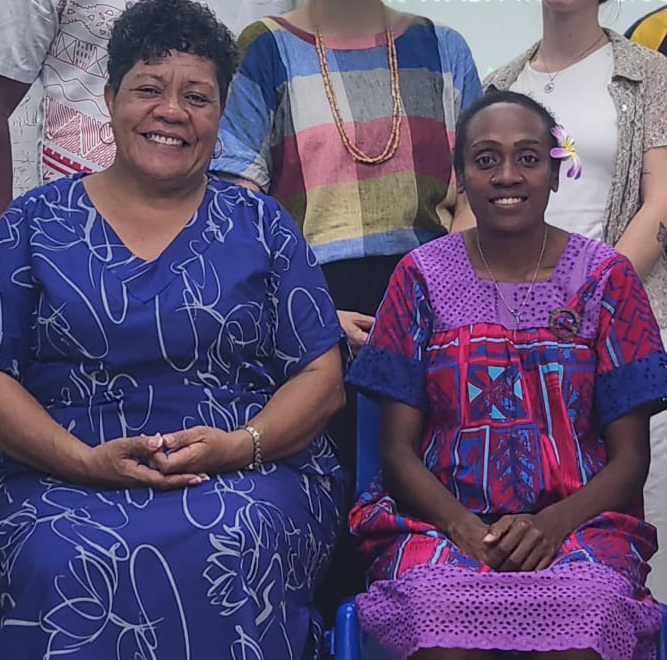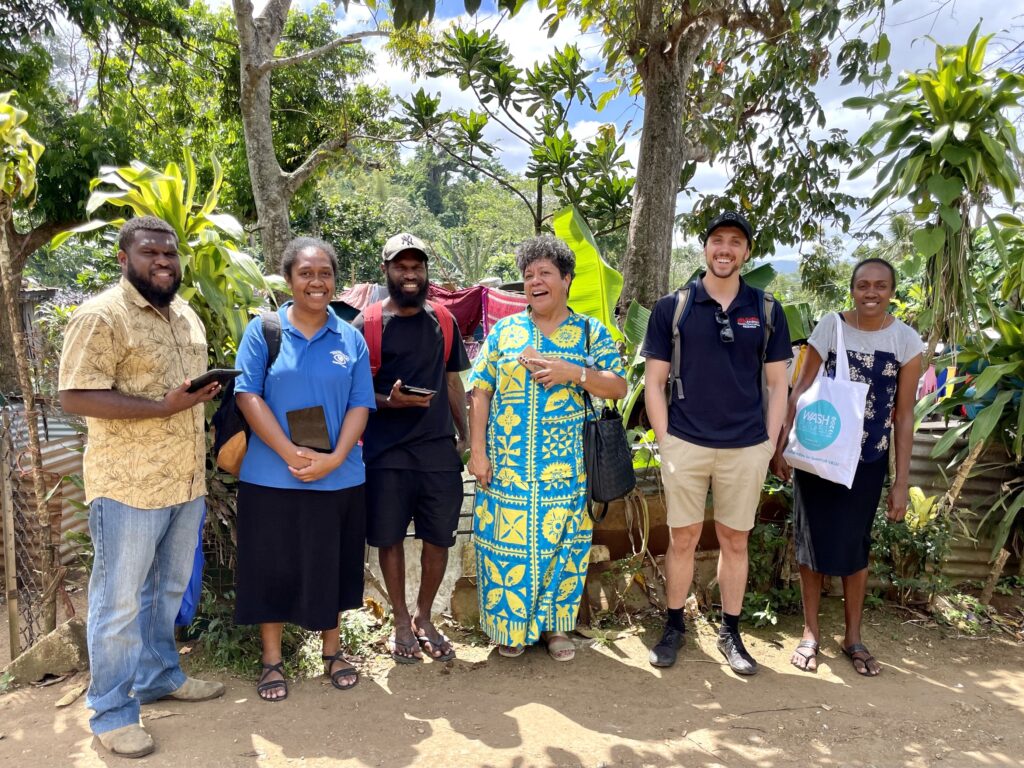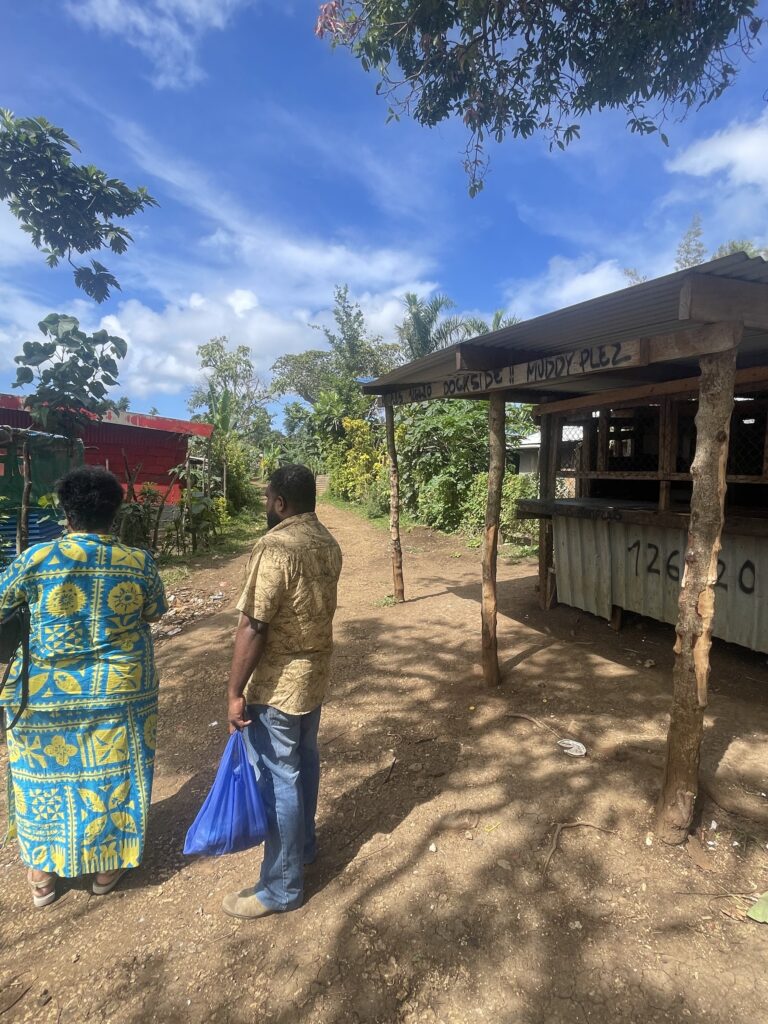
- Research project
- – Western Pacific
In 2023, Camari Koto, a social researcher from the University of the South Pacific (USP) Fiji and Fiji Project Manager for the “Planning for climate-resilient urban WASH” research program, participated in a ‘south-south researcher exchange’ a part of the project’s goal to strengthen local research capacity.
Camari travelled from her home campus in Suva, to USP Emalus campus in Vanuatu, where she spent time with other members of the urban WASH research team, and visited some urban informal/underserved settlements in Port Vila.
Here, Camari shares her reflections on the idea of researcher exchanges.

“As a curious Pasifika mid-career researcher, to be in the place and personally gaining additional insights affirmed the importance of ‘place-based’ learning and context in clarifying certain issues under study. The ‘talanoa’ sessions with Ni-Vanuatu at Emalus Campus, USP and with other WASH stakeholders helped to clear some of my misunderstandings about informal settlements in the Pacific, which were based on what I know about settlements in Fiji. For example, in Fiji, the term ‘informal settlement’ is common language and is generally understood and defined in Fiji, through a formalised legal land tenureship perspective.
Any place of residence without legal tenure is an informal settlement. In Port Villa, the term ‘informal settlements’ is not used commonly, and instead people are referred to as ‘squatters’ from ‘squatter settlements’. This is defined around the structure of the settlements and whether it is a planned or an unplanned area for residences; most are on customary land and so legal land tenureship is less used in defining the status of the settlement (many residents have permission from the customary landowners to live on the land). In a conversation with a Manples resident during the community visit, ‘informal settlement’ is understood as an area that is not formal: “It’s not a formal area like what we see for most places and houses in the city, where houses are not built anyhow” (Manples resident); they are built in line with building regulations.

Despite such terminology differences, what was clearly visible as similar in both cities are the sub-standard quality of houses, poor drainage and sanitation systems, high solid waste pollution and overcrowding.
Accompanying the research team for a survey in Manples was a unique exercise for me, because it provided an opportunity to visit the same types of communities of interest but in a different country. This was valuable because of the much richer insights I have gained on the urban WASH context of Vanuatu, which helps me to understand and research this issue across the Pacific more broadly.
But importantly, it also gave me the opportunity and privilege to engage with and mentor some Pasifika early career field researchers, which was a beneficial learning experience for all of us involved”.

The south-south researcher exchanges are an important of part of the IWC’s ‘Planning for climate-resilient urban WASH research project’, which includes an objective to contribute to local researcher capacity for water and WASH research. This is critical for locally-led research to grow and thrive, and essential to inform local policies and programs.
This project is funded by the Australian Government’s Water for Women Fund.
Full research title: Participatory and integrated planning processes in urban informal settlements and areas of new housing growth to improve the resilience of water, sanitation and hygiene service delivery to climate change and future population changes in Pacific Island cities.
Duration: January 2022 – September 2022
Funded by: